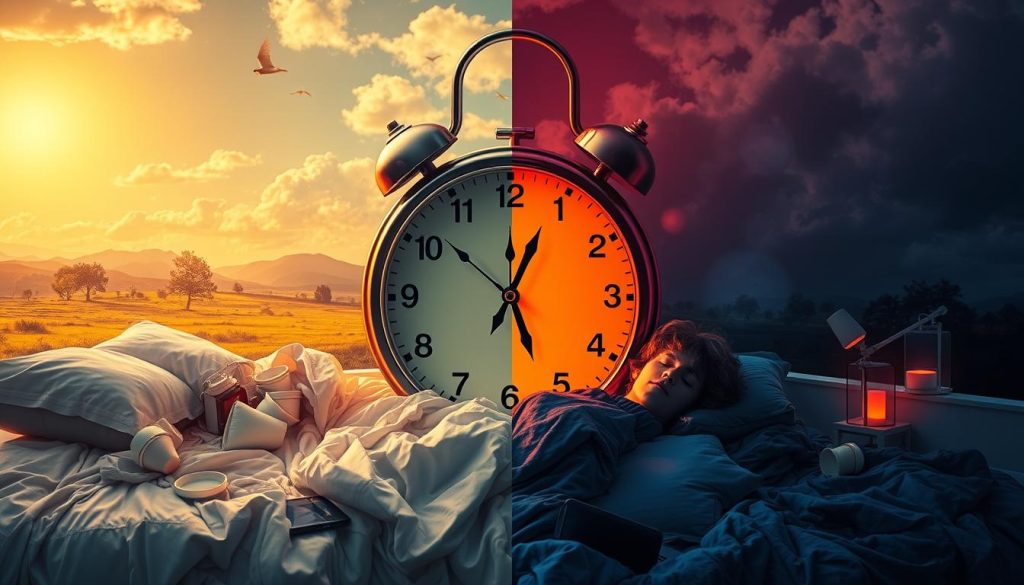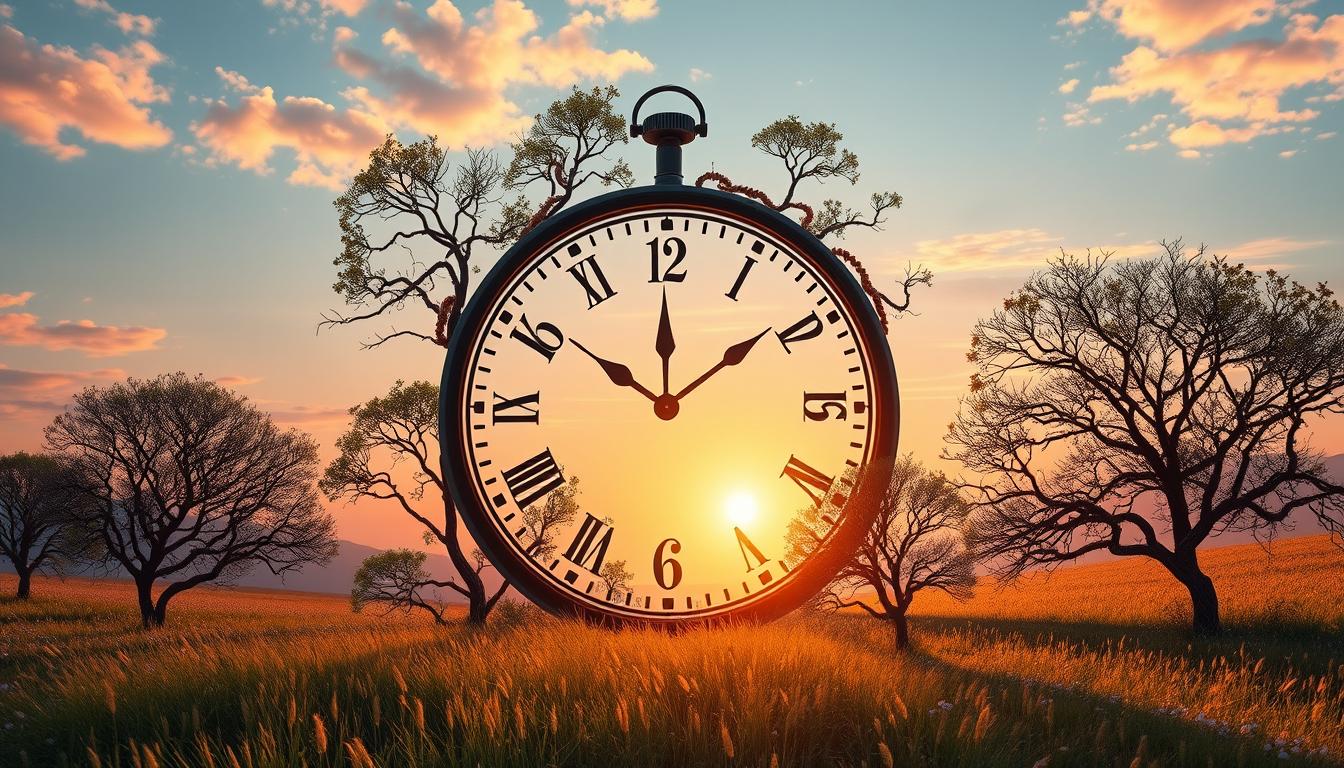The idea of circadian rhythm really catches my interest. It shows how my biological clock affects my daily life. This natural rhythm controls my sleep and is influenced by things like light and temperature.
Learning more about my circadian rhythm helps me improve my sleep and health. By following these natural cycles, I can feel more energetic during the day. It also helps me keep a regular sleep schedule.
What is Circadian Rhythm?
The circadian rhythm is like an internal clock that controls my body’s functions over 24 hours. It affects my sleep, hormone levels, and eating times. The hypothalamus manages these cycles, making each person’s rhythm unique.
Defining Circadian Rhythm
Knowing about circadian rhythm helps me understand my daily life better. It keeps me alert or sleepy at the right times, which is key for health. Melatonin, the sleep hormone, plays a big role in this process, keeping me in tune with nature’s rhythms.
The Role of Light in Circadian Rhythm
Light is very important for my circadian rhythm. Natural sunlight helps my body know when to be awake or sleep. As night falls, my body makes more melatonin, helping me relax and sleep well. It’s important to know how light affects my sleep and wake times.

| Factor | Description | Impact on Circadian Rhythm |
|---|---|---|
| Light Exposure | Natural sunlight during the day | Helps synchronize the internal clock |
| Melatonin Production | Hormone released in response to darkness | Promotes restful sleep |
| Activities | Daily habits and routines | Influence sleep-wake cycle and energy levels |
| Age | Developmental changes over lifespan | Affects circadian cycles |
The Science Behind My Biological Clock
Understanding my internal clock is key to seeing how it shapes my life. It works through complex processes that keep my body in sync with day and night. This is a 24-hour cycle.
How My Body’s Internal Clock Works
My biological clock uses hormones and neurotransmitters to work. Light is a key signal that controls melatonin production. Melatonin helps me sleep and wake up.
When it gets dark, melatonin levels go up, making me sleepy. This process is crucial for my body’s functions, like metabolism and mood. Without it, I’d find it hard to stay in rhythm with the world, affecting my energy and health.
Genetics and Biological Timing
Genetics greatly influence my biological timing. Some genes make me a morning person or a night owl. Research shows that genes and environment interact, affecting my sleep patterns.
This connection between genes and sleep helps us understand my internal clock better. It shows how biology and lifestyle are linked, impacting my daily life.

How Circadian Rhythm Affects Sleep Quality
The way my circadian rhythm works is key to my sleep quality. Being in sync with this internal clock helps me sleep better. Knowing about sleep cycles can improve my rest and health.
Understanding Sleep Cycles
My sleep goes through different cycles, switching between REM and non-REM sleep. Each cycle lasts about 90 minutes. The sleep gets deeper in each stage.
When my circadian rhythm is in sync, I sleep better. Sticking to a regular sleep schedule helps my body go through these cycles smoothly. This makes my sleep more restful.
The Impact of Sleep Disorders
Circadian disruption can cause sleep disorders, hurting my health. Issues like insomnia, sleep apnea, and restless legs syndrome make it hard to sleep well. They also make me tired during the day and affect my mood.
It’s important to see how my lifestyle affects my sleep. By improving my sleep habits, I can fight off these disorders’ impact on my daily life.

| Sleep Disorder | Symptoms | Effects on Sleep Quality |
|---|---|---|
| Insomnia | Difficulty falling asleep, waking up frequently | Decreased overall sleep duration |
| Sleep Apnea | Loud snoring, gasping during sleep | Fragmented sleep cycles |
| Restless Legs Syndrome | Uncontrollable urge to move legs | Interruption of deep sleep stages |
Circadian Rhythm and Biological Clock
Learning about my circadian rhythm has changed my life. It’s linked to my health, and disruptions can lead to big problems. These include obesity, diabetes, and heart disease. Keeping in sync with my biological clock helps me stay healthy and balanced.
Interconnection Between Circadian Rhythm and Health
Exploring my body’s internal clock shows how crucial circadian health is. When my rhythm is in sync, I feel better. But, when it’s off, I face health issues and mood swings. Staying in tune with my rhythm helps prevent chronic diseases and boosts my energy.
Influence on Mood and Energy Levels
My mood and energy levels are greatly affected by my circadian rhythm. When it’s in sync, I’m full of energy and feel stable. But, disruptions make me irritable and tired. Knowing this helps me make choices that improve my mood and energy.

